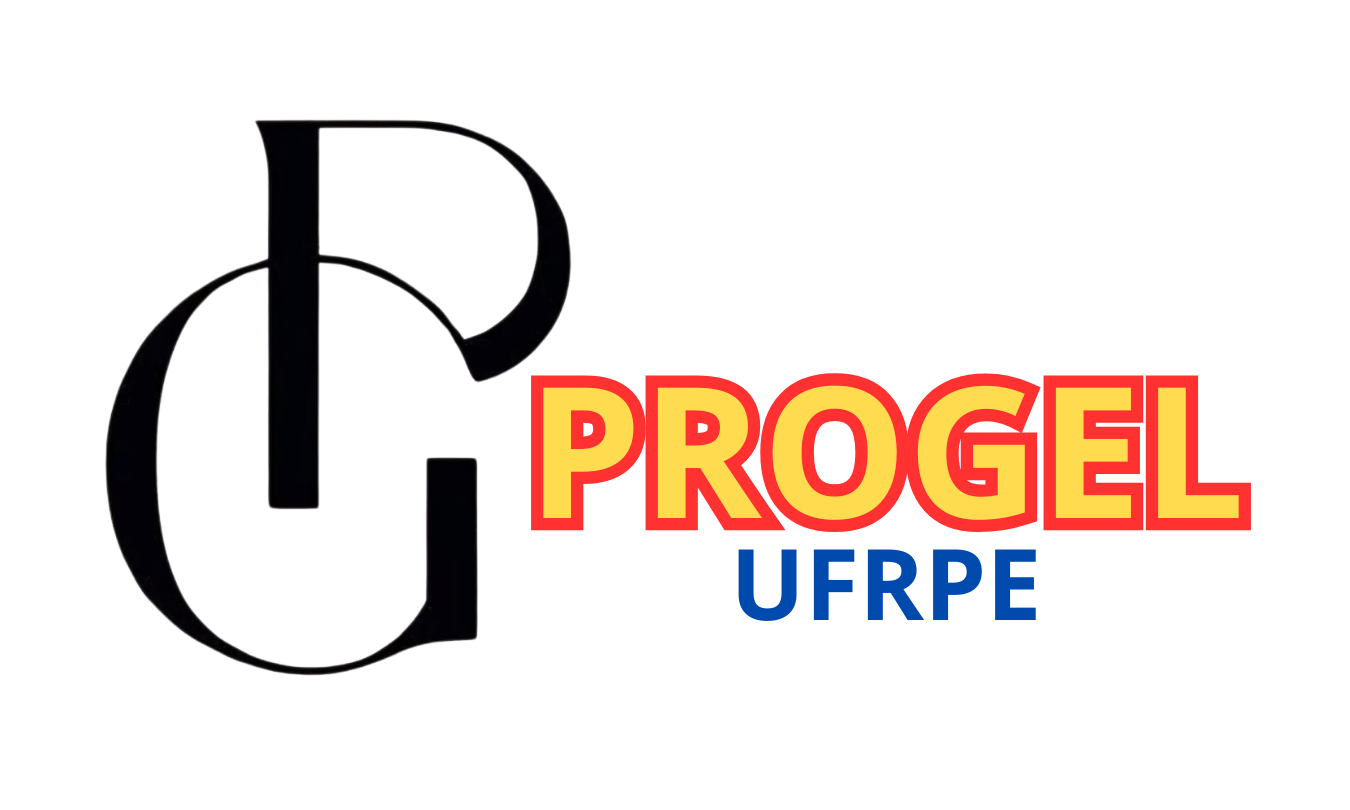Infrastructure
Coordination Office:
We have one (01) administrative office (coordination of the academic master's program and program secretariat), equipped with three (03) computers, two (02) printers, one (01) meeting table, and five (05) cabinets for storing documents, processes, and books available for student lending.
The Coordination of the Graduate Program in Language Studies (PROGEL) is located at EspaçoTec/UAEADTEC, on Rua Dom Manoel de Medeiros, s/n, Bairro Dois Irmãos/Recife.
Classrooms:
Currently, the Graduate Program in Language Studies (PROGEL) has two classrooms located at EspaçoTec/UAEADTEC, with capacities of 12 and 15 students, respectively. For larger classes (mandatory courses), PROGEL utilizes a classroom at the Centro de Ensino de Graduação (CEGOE), which is available on a rotating and pre-scheduled basis, exclusively for postgraduate classes.
The CEGOE classroom is a spacious area that accommodates up to 50 students and is equipped with a whiteboard, 50' smart TV with internet access, multimedia projector, and air conditioning.
Auditorium:
PROGEL has a medium-sized auditorium (seating capacity: 45 people) within the EspaçoTec building, where the program is located. The auditorium is equipped with speakers, microphones, a Datashow, computer, whiteboard, table, and chairs. It is used for public defenses, conferences, meetings, selection processes, and student welcoming sessions.
Research in Motion Program (PPM):
For field research (in public and private schools of Basic Education), as well as linguistic communities (Quilombola and Indigenous groups in Sertão do Pajeú), PROGEL receives support from the Research in Motion Program (PPM) of the Graduate Studies Dean's Office at UFRPE. The program aims to provide vehicles for researchers to actively participate in setting up, monitoring, and collecting data for scientific, technological, and innovation research developed within UFRPE. This support enhances the quality and quantity of scientific and technical publications derived from conducted research.
Laboratory and Equipment Infrastructure:
PROGEL has two (02) Language Laboratories, each equipped with eight (8) computers (16 computers in total), a Datashow, and a digital whiteboard to support teaching and research in one of the laboratories, along with tables and chairs.
The laboratory computers are connected to the internet via wired connections, in addition to WiFi access provided by UFRPE.
Furthermore, PROGEL students have access to UFRPE's computer lab, which is equipped with 16 computers. These laboratories operate daily, in the mornings and afternoons, and can be used by students through prior scheduling.
Currently under development is the Laboratory of Language, Literature, and History Studies (LANGUE), which focuses on research related to the historiography of Brazilian literature from the 19th and 20th centuries, as well as language, gender, and power relations in subaltern groups.
Shared Infrastructure:
PROGEL students also have access to UFRPE's computing laboratories, which house 16 computers.
Regarding network infrastructure, UFRPE provides Eduroam, enabling wireless internet access both locally and at thousands of access points across Brazil and worldwide with a single credential (login/password).
Eduroam is provided by the National Research and Education Network (RNP) for institutions participating in the Federated Academic Community (CAFe).
LIBRARY
The Integrated Library System (SIB-UFRPE) consists of:
- 1 Central Library (BC) and 1 Sectoral Library (BSMCA) in Recife.
- 3 Libraries in academic units: UAST, UACSA, UABJ.
The Central Library (BC) (link) offers spaces for academic community activities.
Its Periodicals Department provides computers with internet access for research in databases and CAPES journals. There is also a video room (24 seats) and exhibition hall.
The Sectoral Library (BSMCA) (link) is part of SIB-UFRPE and aims to provide access, retrieval, and transfer of information for research, teaching, and extension in Social Sciences and Humanities.
UFRPE has an Approved Collection Development Policy (Resolution UFRPE/CONSU No. 218/2022), an important tool for bibliographic planning and management, setting guidelines for selection and acquisition of collections.
- Library Resolutions: link
- SIB Collection: 230,000 volumes accessible via the Pergamum Online Catalog, organized by Dewey Decimal Classification (DDC).
- Book Collection: 98,272 copies across several disciplines.
- Periodicals Collection: 51,674 titles (national and international).
SIB SERVICES:
- Home Loan, Special Loan, Interlibrary Loan, Collection Consultation, Online Reservations & Renewals, Guided Visits, Source Cataloging, Academic Writing Standards (ABNT formatting assistance), Bibliographic Exchange (COMUT), Training and Courses, Knowledge Hub (link).
DATABASE TRAINING:
The Central Library (BC) provides database training, focusing on databases subscribed by SIB.
Courses include topics like:
- Information sources on the web
- Using the CAPES Journal Portal
- Lattes Curriculum: filling and updating
- Minha Biblioteca: catalog & functionalities
- Accessible academic document production
- Academic writing normalization (link).
UFRPE DIGITAL COLLECTION:
UFRPE hosts several restricted & open-access digital platforms, including:
- BDTD UFRPE (link): Nationally integrated repository for postgraduate (master's & doctorate) publications. PROGEL dissertations are also published on their webpage (link).
- BDTD - Brazilian Digital Library of Theses & Dissertations (IBCT): Centralized research system (link).
- UFRPE Journal Portal (link): Hosts scientific journals via the Electronic Journal Publishing System (SEER).
- Minha Biblioteca (link): A digital library offering a multidisciplinary catalog from Brazil’s leading academic publishers.
- TARGET GEDWEB (link): A technical standards database covering ABNT NBR/NM & other regulatory bodies.
- CAPES Journal Portal (link): Accessible via UFRPE IPs or remote access through CAFe Network.
- UFRPE Institutional Repository (RI UFRPE) (link): Houses document archives, special collections, databases, and academic works.

